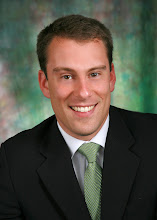“To Baby Sparky”
By Hans Zeiger
Appeared in the Puyallup Herald on July 2, 2008
Just before the first birds of morning began to sing on the Fourth of July, 1944, Dorothy Gamaunt knew that it was time. She awakened her father to drive her to the hospital. The normally steady Mr. Martin, owner of Martin’s Confectionary downtown, was nervous as he got into the car, and he flooded the engine. Frantically, he sprang out into the dewy morning air and rapped on the neighbor’s door. It opened; keys were quickly handed over; Dorothy moved from one car to the next. The car wouldn’t start. Mr. Martin turned to his daughter beside him with the gravest expression on his face. “Honey,” he asked, “are you sure you want to go through with this?”
After the engine flood subsided, it was Mr. Martin’s own car that brought Dorothy and her offspring to the hospital downtown, where Dr. Charles Aylen delivered Leon Gamaunt III.
Before the measurements could be taken, Grandpa Martin was out at the train depot, not far from the hospital. He walked into the telegraph office and stated his purpose. The telegraph man returned a slip that included spaces for “name,” “weight,” and “height”—none of which Mr. Martin had. So the message to Puyallup’s newest father was, “Mother and son both fine.”
In the afternoon heat of the North African desert, Baby Leon’s namesake was sitting in the airfield barracks when the telegram arrived. Leon Gamaunt was a mechanic in the Army Air Corps. An enthusiastic messenger ran in with the news. “You have a son! It’s a boy!” he shouted.
When word spread through town of the Martins’ new grandson, Mr. and Mrs. Olaf Kniffen, of Kniffen’s Bakery, sent a gift to the Martin residence. It was a romper suit, but the important thing was the card that was attached. “To Baby Sparky,” it read, for little Leon had come in time to celebrate America’s independence in a year when the reasons for celebration were especially evident. The nickname stuck.
Baby Sparky’s Uncle Julian, who grew up in Puyallup before moving to California, also gave a gift to his Fourth of July nephew. It was the kind of gift that we recognize on the veteran’s memorial in Pioneer Park, where Julian Gamaunt’s name is inscribed. It wasn’t just that Julian died in August in a field hospital outside of Paris that he is worth remembering.
When Dorothy Gamaunt thinks of her brother-in-law Julian today, she sees him in the photograph that was taken just before his death. In it, he is flanked by smiling French girls, whose town he had just liberated. To the girls, the American with a French name was a mighty hero.
But in the Depression Days, after the Gamaunts moved to Puyallup, Julian was a shy student at Meeker Elementary. His father taught him and his brothers the values of diligence and independence. They learned to iron their own shirts and hem their own pants. They learned to respect and honor women. In California as a teenager, Julian spent his time hunting and fishing in the mountains, then as a young man he worked in the mines. Before shipping overseas, he sat for hours into the night, talking about old memories and future hopes with his sister-in-law Dorothy.
We should remember Julian as a scout in the infantry, crossing the English Channel to Normandy just after D-Day. We should remember him in the summer of 1944 as he made his way through the pastures outside the village he had liberated on the long path to Germany, struck down by a sniper bullet between a hedgerow and a forest.
We should also remember the service of Julian’s three brothers—Leon in North Africa, Roger as a pilot in the Air Corps, Johnny transporting the wounded and dead amid the horrors of the South Pacific. Johnny was the youngest, unprepared to see the sights of combat, even less prepared to accept the news of his brother’s death. When he would go to get a wounded man or to move a dead man, he could think only of his fallen brother.
But for most of us, we give little thought to the sacrifices of the fallen.
So why should we remember Julian Gamaunt this Fourth of July?
Well, Julian Gamaunt is buried in an American cemetery outside of Paris. He was a French-American boy, and he was also a Puyallup boy, which meant, since he lived up to the name, that he was generous. He went back to the old country and gave his life to rescue France from the Nazi occupation. More importantly for you and me and Baby Sparky, he died for the nation that was born on the Fourth of July.
Hans Zeiger, a fourth-generation Puyallup resident, is gathering local World War II stories. If you have a story to share, contact Hans at 253-905-8160 or hanszeiger@Yahoo.com.
Wednesday, July 2, 2008
Subscribe to:
Post Comments (Atom)



No comments:
Post a Comment